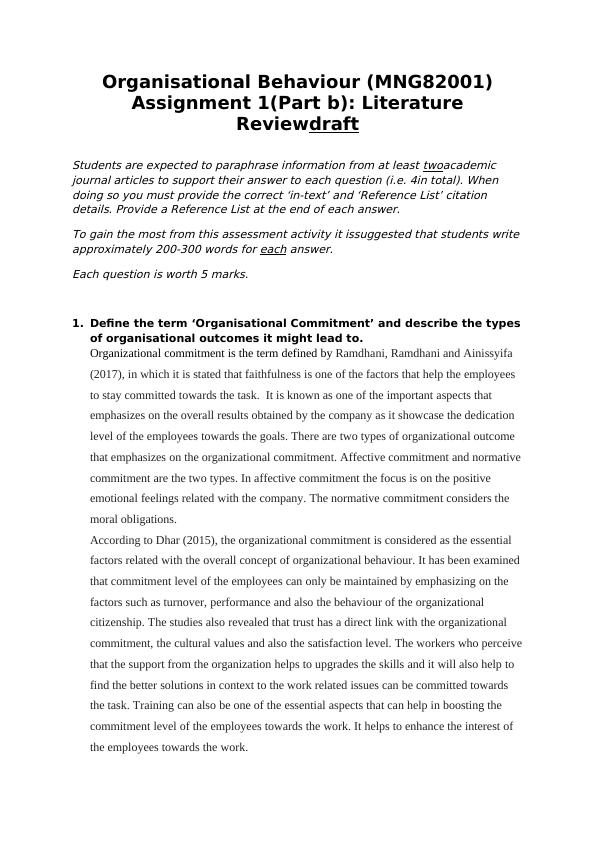Organisational Commitment and its Types
Assignment 1 (Part b) is a Literature Review draft for the course Organisational Behaviour (MNG82001). The assignment requires students to answer two questions related to the term 'Organisational Commitment' and its outcomes, and to describe two strategies from academic literature that can lead to Organisational Commitment.
Added on 2023-01-10
About This Document
Organisational Commitment and its Types
Assignment 1 (Part b) is a Literature Review draft for the course Organisational Behaviour (MNG82001). The assignment requires students to answer two questions related to the term 'Organisational Commitment' and its outcomes, and to describe two strategies from academic literature that can lead to Organisational Commitment.
Added on 2023-01-10
End of preview
Want to access all the pages? Upload your documents or become a member.

